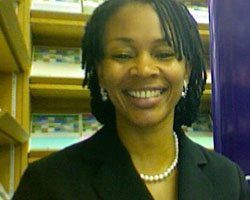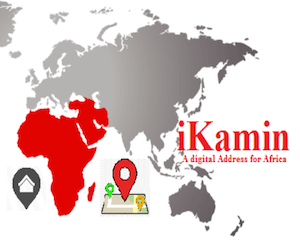How to make it to U.S. Universities, by Olagbaju
OUT of the 723, 277 international students admitted in various tertiary institutions across the United States (US) in the 2008/2009 academic session, 31, 470 were from Africa while 7, 148 were from Nigeria, according to Mrs. Ifeanyi Olagbaju, the Educational Adviser at the US Consulate General in Lagos.
Presenting a paper titled: “Education: The Key to Success Study in the United States,” at a seminar organized by Corona Secondary School for its students and their parents in Lagos recently, Olagbaju also revealed that America has more than 4000 tertiary institutions offering 600 programmes and with the capacity to admit 18 million students. Not less than $49 billion is spent yearly on research.
She told the students that while American education provides several global opportunities, exceptional academic abilities are required to secure placement in any competitive US tertiary institution. She explained that students aspiring to study in US universities must complete secondary education; have good West African Senior School Certificate Examination (WASSCE) grades, which must include Mathematics and the English Language.
Besides, the Test of English as a Foreign Language (TOEFL) and the Scholastic Aptitude Test (SAT) are required. For TOEFL, she said a student must score at least 80 percent, while a good knowledge of Mathematics and English are required to pass the SAT. She also listed official academic records, essays and proof of financial capabilities as essential components of the application process.
Olagbaju stated that up to 2000 US institutions offer funding towards a Bachelor’s degree; 800 offer international financial aid above $10,000, while 300 offer aid above $20,000. About 80 institutions, she added, “can provide full funding.”
However, she informed her audience that only highly competitive international students, with high grades and TOEFL, SAT scores; evidence of leadership, intellectual commitment and extracurricular activities, could get financial aid. Partial financial aid, that could cut the family’s cost to below $15,000 per year, is easier to get.
To get a student visa, Olagbaju explained that consular officers look out for certain qualities and documents. She said: “the student must show evidence of ability and motivation to complete course of study, intention to return home after studies, an ability to discuss a solid plan, in English, with total honesty.” She also said that parents of the aspiring student must show evidence of adequate financial capabilities, including their sources of income.
Olagbaju advised the students to aim for high goals and not be ordinary. She listed the secrets of competitive students as: self discipline; time management; body language; finding a mentor; reading; and a passion for learning.
She said: “ordinary students are like rusty wheelbarrows: they only move when they’re pushed, and even then, they roll along reluctantly with all kinds of squeals and moans. Extraordinary students move at a fast pace because they are the first to push themselves. They don’t wait for someone else to get them rolling, they are self-starters and as a result, they go farther.
“Average students get distracted easily; amazing students know that sticking to their prime task and ignoring all manner of interruptions will bring big rewards. Average students put off the toughest jobs till the last minute; amazing students do the most difficult assignments first, when they are still fresh. The best students get the same amount of time as average students, but they manage that time much better.”
Stay updated with all “STUDY ABROAD” news plus other Nigeria education news; Always Visit www.CampusPortalNG.com
Don’t forget to share this news with your friends using the Share buttons below…
Your comments are appreciated, let us know your thoughts by dropping a comment below…


